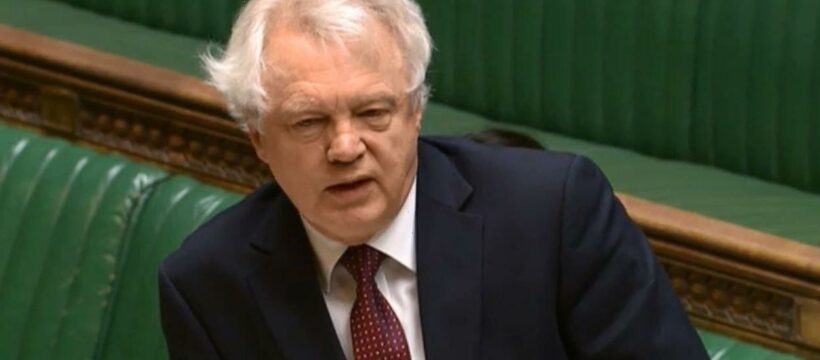MINISTERS are still scrambling to find a solution for post-Brexit trade after Theresa May's war Cabinet failed to reach agreement, David Davis admitted today.
The Brexit Secretary told MPs it will take "some time" to hammer out a deal on customs after the PM's favoured solution was shot down by her colleagues.
Senior ministers last night disagreed on whether to seek a close "customs partnership" with the EU or a looser "arrangement" with Europe.
The meeting of the war Cabinet was so fiery that Business Secretary Greg Clark was said to be "close to tears" as he argued for the customs partnership.
Mrs May now has just days to come up with a compromise – with the group of top ministers set to meet again next week.
Mr Davis hinted today that an agreement is still far off – telling the Commons: "This is a complex and important issue.
"It's no surprise that it takes some time to absolutely nail down this policy."
He added: "The Government is deciding on the future customs arrangements on the basis of the best interests of the United Kingdom."
Mrs May was outnumbered on the Cabinet's key Brexit committee after she suggested a customs partnership with the EU, which would see Britain collecting tariffs on imported goods which are destined for the Continent.
Eurosceptic ministers such as Mr Davis prefer a so-called "maximum facilitation" deal with hi-tech solutions enabling frictionless trade.
The Brexit Secretary brushed away suggestions he could resign if the PM insists on a customs partnership.
He told MPs: "I'm not sure if it is quite constitutional to discuss my resignation – and I don't take it to be imminent."
And Mr Davis also said it was "100 per cent" certain that Britain will leave the existing EU customs union after Brexit.
Yesterday's crunch meeting saw Mrs May summon ten of her top ministers to Downing Street for in-depth talks on the various customs options.
MOST READ IN POLITICS
'WE'RE ALLOWED TO PARTY' 'Tipsy' No10 aide 'taunted cops after lockdown-busting booze-up'
Liz Truss to risk trade war with EU by letting Belfast blow up border deal
Heavily censored Sue Gray report on No10 parties 'to be released next week'
Boris Johnson to hold showdown talks with Vladimir Putin over Ukraine
Newly promoted Sajid Javid sided with Brexit backers such as Boris Johnson and Liam Fox to oppose the customs partnership, sending the PM back to the drawing board.
The group will meet again next week, with time running out before the next EU summit in June when Mrs May wants to confirm the UK's preferred customs deal.
There are fears that yesterday's Cabinet chaos could lead to a soft Brexit, with Tory rebels taking advantage of the disagreement to force through a vote keeping Britain closely tied to Brussels.
Customs confusion: Options for post-Brexit trade explained
ONE of the key planks of the European Union is the customs union which all member countries – currently including the UK – must belong to.
It means there are no tariffs on goods going between EU states, and they all enforce the same standards for goods imported from outside Europe.
Some pro-EU politicians want Britain to stay in the customs union after Brexit – but that has been ruled out by Theresa May, because it would stop us striking any new trade deals with the rest of the world.
Last year, the PM set out two possible paths for the future customs relationship between Britain and Europe.
One option is the "customs partnership" – which would mirror many aspects of the existing customs union.
It would see the UK collect tariffs on behalf of the EU for any goods which enter Britain on their way to the continent.
The advantage of that would be no border checks would be needed between the UK and EU, particularly on the key Irish border, but Brexiteers worry it would tie us too closely to Europe.
The alternative is known as "maximum facilitation" – a hi-tech arrangement where automated systems check goods as they flow across borders in a way which helps business trade freely.
But EU bosses have cast doubt on whether the right technology exists to make that solution work.
While the row may seem technical, many Brexit backers regard it as crucial for the UK to take total control of our trade and customs arrangements, or risk making our EU departure pointless.
Theresa May faces a major challenge finding a solution which is acceptable for both hardline Eurosceptics and the pro-EU Tory rebels.
Source: Read Full Article







